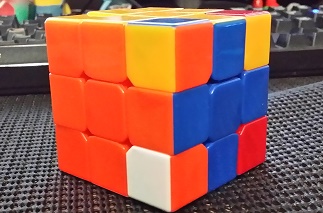Rubiks Cubes! I cant solve them to completetion for the life of me. But now I can just solve them using an AI.
But before jumping into heuristics, A* algorithms, and all kinds of solving. First, let us consider a random Rubiks Cube itself. Is the cube actually solveable in the first place? Can we go from the random state pictured above to a solved cube?
The answer is no. The Rubiks Cube parity has been altered!

